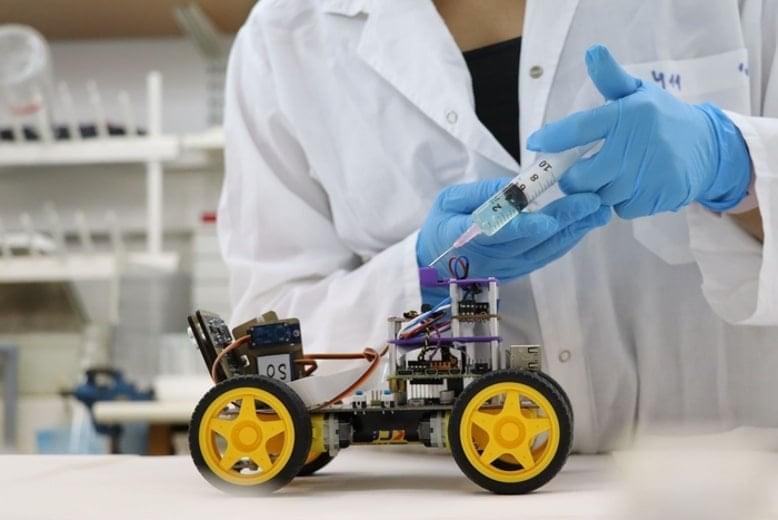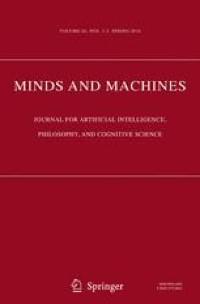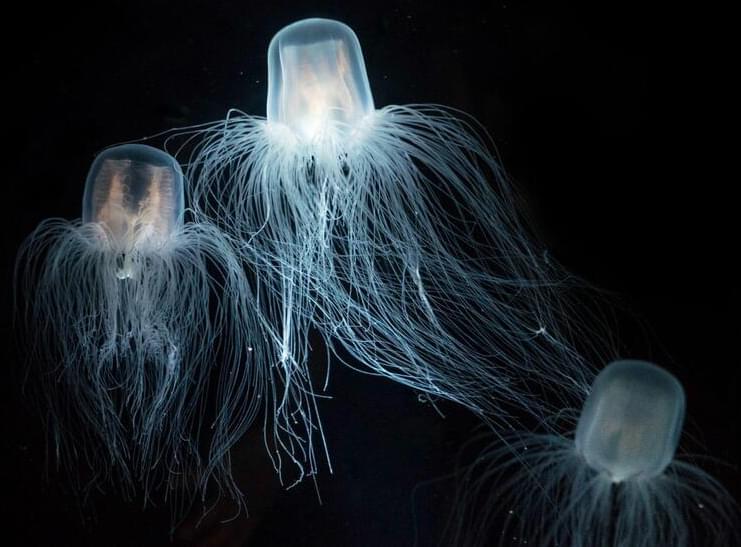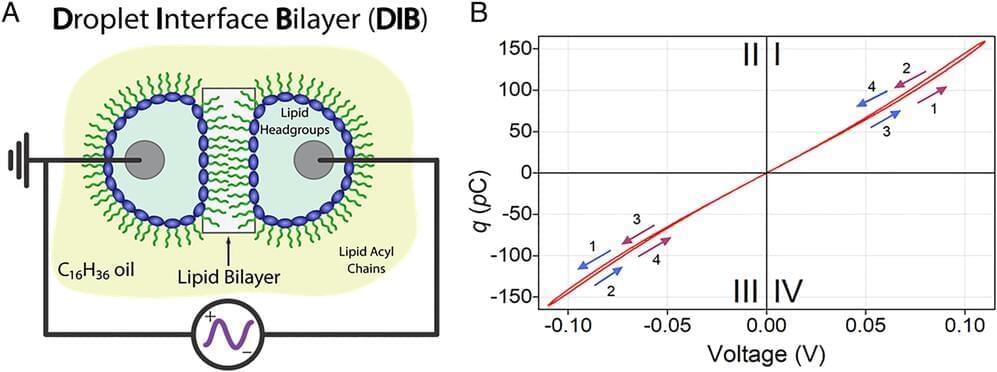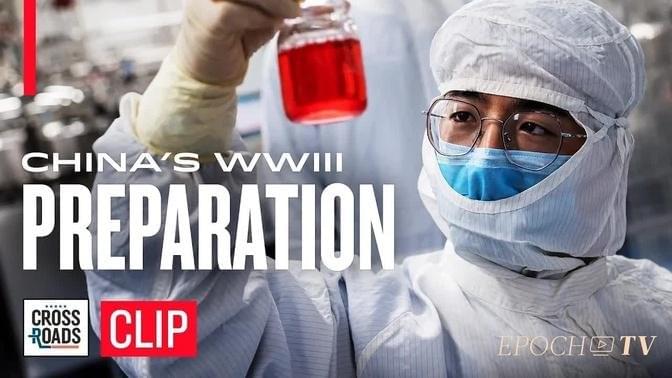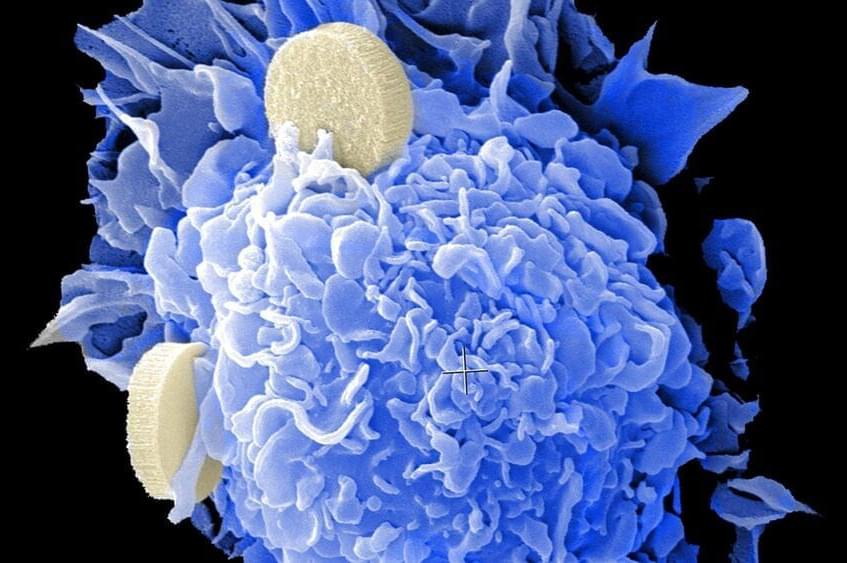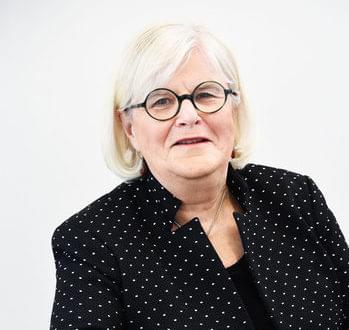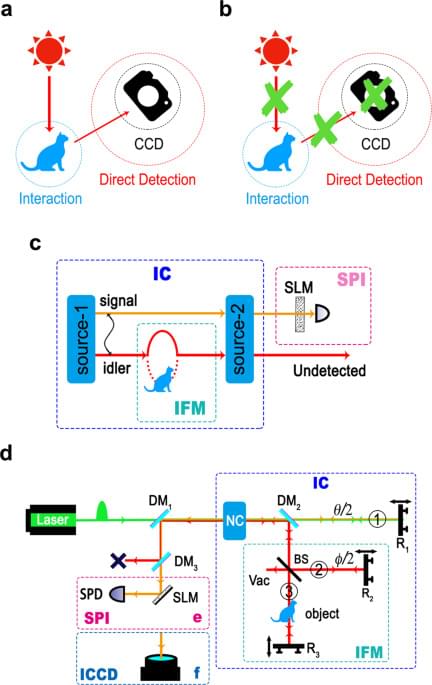
Over the past few decades, several imaging protocols based on quantum technologies have been realized1,2, which have expanded the application capabilities of optical imaging. These include ghost imaging (GI)3,4, quantum imaging with undetected photons (QIUP)5, and interaction-free measurements (IFMs)6,7. The quantum GI scheme relies on the spatial correlations of entangled photon pairs and requires two-photon coincident measurements. Furthermore, ghost imaging can also be realized with classical intensity-fluctuation correlations8. Later, various single-pixel imaging (SPI) protocols were proposed9,10,11,12,13, where the spatial correlations are not between two photons but between one photon and a programmable mask held in a spatial light modulator (SLM).
In contrast to modern digital cameras employing array sensors to capture images, SPI use a sequence of masks to interrogate the scene along with the correlated intensity measurements by a single-pixel detector. The spatially resolved masks are usually generated by computer and displayed by SLM. Combined with compressive techniques10, the number of sampling measurements is fewer than the total number of pixels in the image. Thereby, SPI can reduce the data processing requirement, and shows potential capability for high dimensional sensing12. On the other hand, the modern single-photon detector is featured by improved detection efficiency, lower dark counts, and faster timing response14. Such enhancements have significance to applying SPI into weak signal detection scenarios, such as scattering medium imaging or long-range 3D imaging11.
The QIUP scheme is based on induced coherence (IC), which was first proposed by Zou, Wang, and Mandel15. They used two photon sources to generate photon pairs. By overlapping path of two sources for one photon (idler)15,16,17 and establishing the so-called path identity18,19, there is no information about the origin of the other photon (signal). Thus, the signal photon is in the superposition state of being created in either of the sources. The phase and transmissivity of the idler photon are encoded in the interference of the signal photon. Inserting one object onto the idler path between two sources, one can obtain images exclusively with the signal photons which have no interaction with the object5. In contrast to GI, QIUP does not involve the detection of the photon illuminating the object or any coincidence measurement. This is an advantage of QIUP, as the wavelength of the detected photon can be chosen independently from that of the photon interacting with the object5. This concept was further explored in infrared (IR) spectroscopy20, optical coherence tomography21,22, mid-IR imaging23,24,25, terahertz (THz) sensing26, biological microscopy27, and holography28. Recently, the related SU(1,1) interferometer has been investigated and employed in quantum-enhanced metrology29,30,31,32,33.

